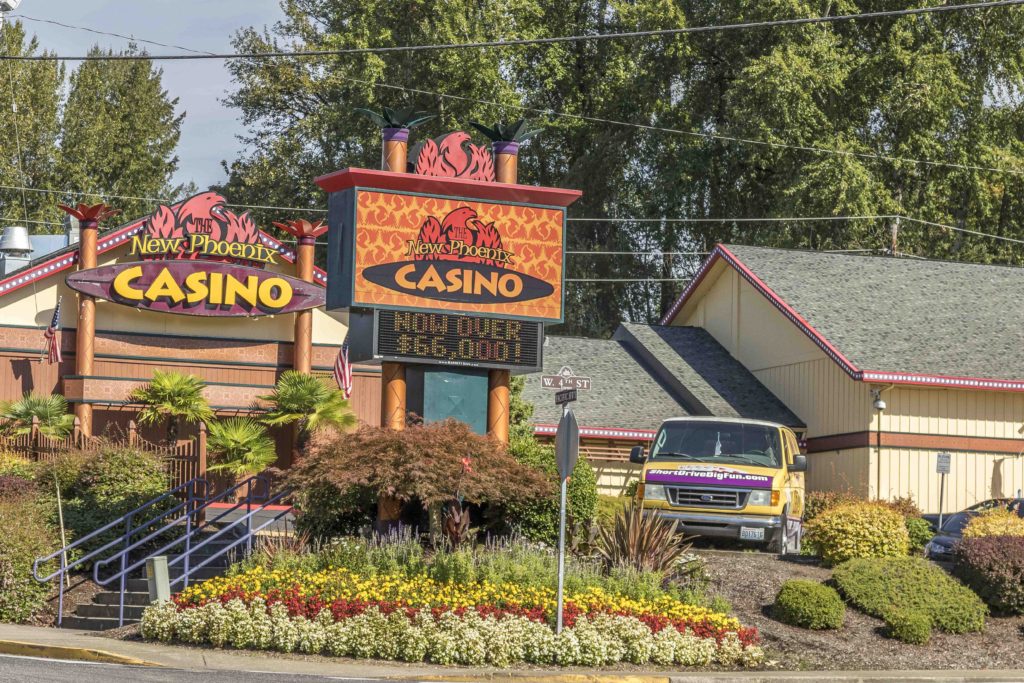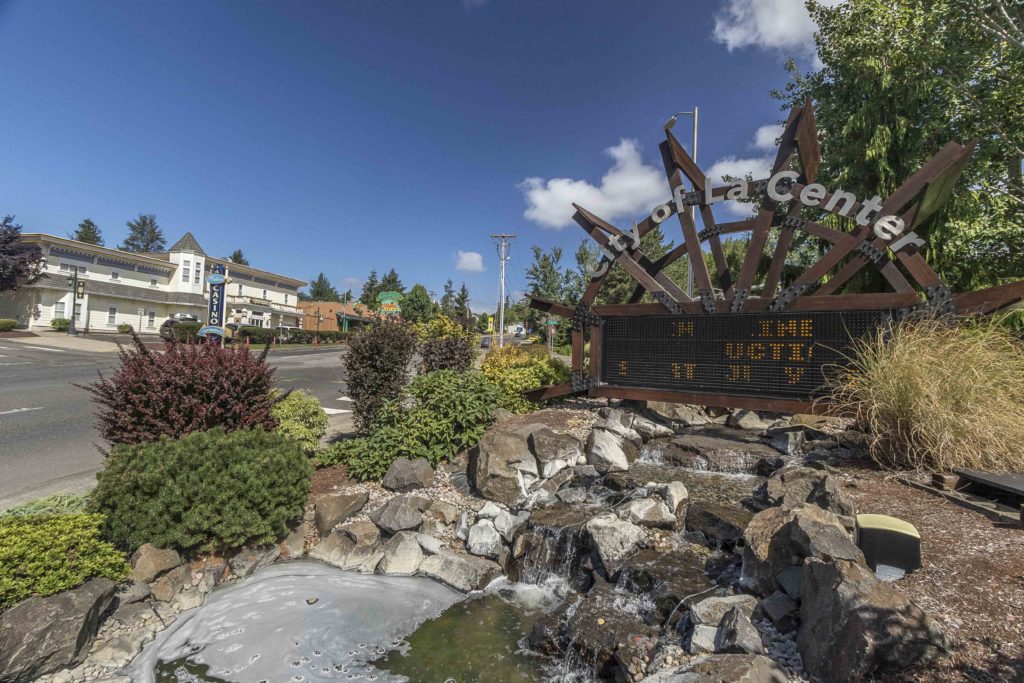LA CENTER — The writing has been on the wall for a long time in La Center, but it was always a question of “if” not “when” — as in “if” the Cowlitz Indian Tribe opened its planned mega-casino near the small north Clark County city’s Interstate 5 border, would gambling tax revenues from the city’s private card rooms plummet?
La Center leaders were right to worry. After all, the gambling taxes the city collected from those private card rooms has been the La Center’s lifeblood since the mid-1980s. This year, gambling taxes from the city’s three card rooms injected more than $3.3 million into La Center’s budget, making up three-fourths of the city’s general fund revenues and paying for city services like police, parks and street maintenance.
Now, of course, the question of “if” the Cowlitz casino will open has a clear answer — after more than 12 years’ worth of legal entanglements, the Cowlitz have emerged victorious and are going gangbusters on their casino construction, set to open the $510 million casino in April of 2017.
“With the opening of the Cowlitz casino in April, we’re assuming that one card room will close and that the remaining two will operate at 50 percent of their prior volume for the remainder of the year,” La Center Budget Committee member Paul Lewis told La Center city councilors at their regular meeting on Wed., Oct. 26, during the city’s first look at the preliminary 2017 city budget.
La Center’s budget committee is forecasting a much different revenue stream picture for 2017 and beyond. Instead of making up 73 percent of the city’s general fund revenues, the card rooms are expected to contribute 51 percent, or $1,565,384 in 2017.

Now the question is “how?” — How does La Center move past the expected drop in gambling taxes?
The city’s 2017 preliminary budget calls for tax increases, including a 1-percent increase in property taxes and several utility excise taxes. Together, the tax increases would account for less than $100,000 in revenues for 2017. To avoid slashing services, city leaders want to use about $650,000 in unexpected revenues from the card rooms’ gambling taxes that came in this year, and could dip into the city’s general fund reserves to help keep services stable in 2017.
Lewis said Wednesday night that the city had set aside a larger-than-required reserve balance in 2013 to “deal with unanticipated events” like the opening of the Cowlitz casino and the possible drop in gambling tax revenues.
The problem La Center faces now is that, even with the reserves, the city may be in for some rough financial times after 2017.
To take the city into the future, Mayor Greg Thornton is looking at a three-pronged approach:
- Offering a temporary and flexible reduction in the gambling tax rate, going from 10 percent to 5 percent until the start of 2018, to help the city’s card rooms cope with the opening of the Cowlitz casino and help entice them to remain in La Center or possibly help market their existing properties to bring other businesses, perhaps a grocery store, into the city’s downtown core;
- Diversifying the city’s revenues with increased property taxes and utility excise taxes; and
- Developing prime industrial and commercial land near the city’s Interstate 5 junction to help break La Center’s dependence on the card room gambling tax revenues. To help with this, Thornton has requested that the city create a new community development director position.
Several community members, as well as City Councilor Al Luiz, took issue with the community development position, which would cost the city an additional $110,000 a year in salary and benefits, but Thornton said he believed the new position was “critical” to the city’s future.

“I predict that development at the junction will increase significantly and we need someone here who will be an advocate for the city,” Thornton said. “2017 is a transition year for us. We can no longer afford to keep the status quo. We either take a look at some of these things and get out ahead and hire someone who will make it happen … or it’s not going to happen.”
He added that the salary for a new community development director would be an almost neutral number, since the city is currently paying an outside planner, Eric Eisemann, to take on many of the duties that the community development director would have in their job description.
Thornton also defended the call for a temporary reduction in the tax rate the city puts on the private card rooms, saying the city could take a “wait and see” approach as some community members suggested, but that it could backfire: “We wouldn’t want to gamble on them not leaving and if this small pittance of 5 percent [tax reduction] helps keep them here, it’s good for the city.”
He added that city councilors could always revisit the tax rate reduction if the card rooms defied expectations and continued to bring in similar profits after the tribal casino opened.
“If their revenues don’t diminish as much as we anticipate, then we can move it [the 10 percent gambling tax rate] back up earlier than what we see here in the budget,” Thornton said of the preliminary plan to keep the tax rate reduction in effect until the beginning of 2018.
The city will release a complete version of the preliminary 2017 budget on Wed., Nov. 2, and will hold a series of public budget hearings in November and December before adopting the city’s final budget for 2017. To see the Mayor’s 2017 Draft Preliminary Budget resented to city councilors at the Oct. 26 meeting, click here and scroll to page 16.




